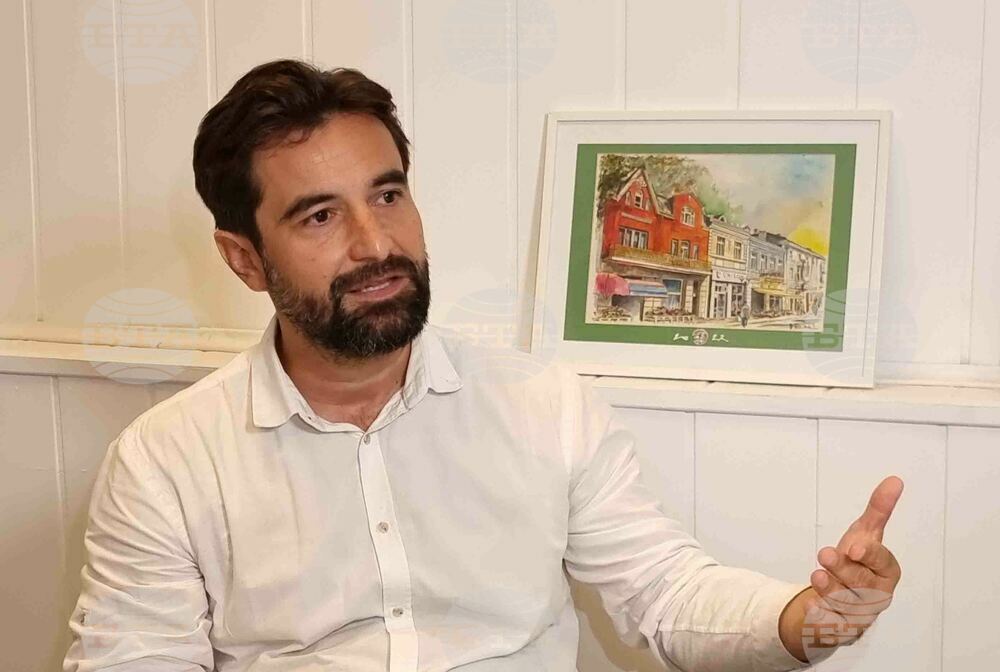site.bta"Romania's Elections Were Largely Predictable, Being Organized by Two Largest Establishment Parties", Independent Journalist Tells BTA


"The elections in Romania were certainly predictable because they were very well organized by the two largest establishment parties in government," independent journalist Stiliyan Deyanov pointed out in a BTA interview, explaining that the Social Democratic Party (PSD) and the National Liberal Party (PNL) are the only parties with such a ramified network of structures countrywide.
Deyanov has been actively following political processes in Romania since 2005. He talked to this correspondent at the BTA National Press Club in Bucharest.
"In Romania, just as in Bulgaria, parties' grassroots penetration depends on the clientelist, family and any other local-level feudal networks. By the simultaneous holding of the European and local elections, PSD and PNL cashed in on the activation of all those clientilist and family networks by the mayors and municipal councillors for the local vote so as to achieve a far higher voter turnout at the European elections and, in a sense, made the results a foregone conclusion."
The interviewee noted that PSD and PNL had mayoral and municipal-councillor candidates in 90-95% of Romania's settlements compared to, say 40% of the Alliance for the Union of Romanians (AUR) and the rest of the parties which, naturally, impacted the European Parliament elections as well.
Another important factor that inevitably influenced the overall outcome was the hundreds of places in Romania with a single candidate and other hundreds with just two candidates: of PSD and PNL. The single-round local elections also gave an advantage to the larger vote getter.
"While the PSD-PNL coalition had a joint candidate list for the European Parliament, the two coalition partners ran on straight tickets for the local elections in many places. Where there was a risk of the opposition Save Romania Union (USR) winning, however, the two ruling parties fielded joint candidates or candidates that backed each other," Deyanov explained, describing these arrangements by the establishment parties that have been governing Romania over the last three years as "a very smart strategic move".
"The ruling parties win. That was actually the case early in the 20th century: whoever organizes the elections almost always wins them," the journalist said.
He was not at all surprised by the poor performance of the United Right Alliance. USR did not capitalize on their role of an active reformist opposition and instead quarrelled with Dacian Ciolos's Renewing Romania's European Project (REPER) party. At the current elections, USR coalesced with two near-establishment parties: Traian Basescu's People's Movement Party (PMP) and Ludovic Orban's Force of the Right (FD). This coalition actually eroded USR's voter base on June 9.
Deyanov listed two reasons for the Right's election disaster: the loss of their reformist profile and potential, and the control that establishment parties exercise over media, government institutions and special services, which made the reformist Right invisible, exposed them to court cases, etc. "Unlike Bulgaria, Romania is by no means a state entirely controlled by the oligarchy. Nor is there any comparison to the Romania of the time of [Chamber of Deputies president] Liviu Dragnea and [prime minister] Viorica Dancila, when crackdowns and attempts to use government institutions for personal and partisan purposes were far more forceful. Still, the establishment coalition (a far less oligarchic establishment than Bulgaria's), which has been running the country for three years now, is notably striking blows at the leeway of Romanian democracy," the journalist commented.
"In Bulgaria, the whole campaign was conducted with the help of the services, with the help of the government institutions. We have a main oligarch, two parties which almost entirely control the prosecution service and the securities services and the regulatory bodies and everything else. In Romania, thanks to the 10 years of successful operation of the National Anticorruption Directorate [between 2005 and 2015], the situation is different. The judicial system and the government institutions retain a measure of independence despite the ongoing, 'natural' drives back to the old one-party state," Deyanov said, adding that "things are not as bad as in Bulgaria."
Replying to a question, the journalist said it is too early to make predictions about the presidential elections in September and about the parliamentary elections in December. "In the coming days, the main parties are expected to clarify their strategies for these elections: whether PSD and PNL will stand together, whether they will have joint or separate presidential candidates, whether NATO Deputy Secretary General Mircea Geoana will run and which parties will back him, how the reformist Right would react and what format it will opt for. These questions will be answered in the coming months," Deyanov said in his BTA interview.
/DD/
Additional
news.modal.image.header
news.modal.image.text
news.modal.download.header
news.modal.download.text
news.modal.header
news.modal.text




